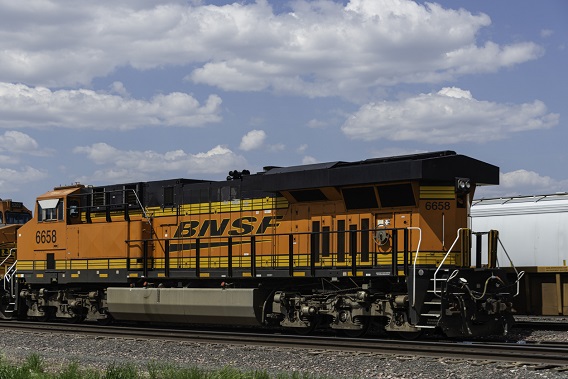Federal Jury Says BNSF Railway Played a Part in Libby Deaths
Legislation & LitigationWritten by Travis Rodgers | Edited By Amy Edel

A federal jury’s verdict in favor of the plaintiff in a wrongful death lawsuit finds BNSF Railway contributed to the deaths of Thomas Wells and Joyce Walder. Jurors agreed with the plaintiff’s argument that asbestos-contaminated vermiculite in the railyard was a considerable factor in these deaths.
The estates of Wells and Walder filed the wrongful death lawsuit in 2021. Both Wells and Walder lived near the railyard and were both diagnosed with mesothelioma and died in 2020. Compensatory damages of $4 million each will be awarded to their estates.
The plaintiffs argued BNSF knew that vermiculite contaminated with asbestos was harmful, but didn’t properly clean up the railyard. While the jury did find BNSF Railway was negligent, it didn’t find that the company acted intentionally or with indifference so no punitive damages will be awarded.
BNSF attorney Chad Knight says the railroad’s employees didn’t know the vermiculite was contaminated with toxic asbestos fibers. The railroad contends it was just doing its job of shipping the vermiculite across the country to be used in products such as insulation. BNSF is considering an appeal.
This is the first of several lawsuits filed against BNSF Railway. The next trial concerning the death of a Libby resident against BNSF is set to begin in federal court in May 2024.
An attorney for the plaintiffs says the jury’s decision brought some accountability, but one family member told The Associated Press that no amount of money can replace her lost sister. “I’d rather have her than all the money in the world,” said Joyce Walder’s sister Judith Hemphill.
BNSF Railway
BNSF Railway was Burlington Northern at the time it was transporting vermiculite in Libby, Montana. The company became BN in 1970 when 4 major U.S. railways merged: Great Northern Railway; Northern Pacific Railway; The Chicago, Burlington & Quincy; and Spokane, Portland and Seattle Railway.
Burlington Northern actively transported vermiculite from the mine in Libby, Montana for decades. The mine closed in 1990.
BN merged with the Santa Fe in 1995, forming BNSF Railway. The company is the largest rail network in the country.
Investor and businessman Warren Buffett’s conglomerate Berkshire Hathaway, Inc. acquired BNSF in 2010. On February 12, 2024 the company celebrated 175 years.
BNSF stated: “After 175 years, BNSF is a crucial underpinning of the nation’s supply chain and proudly continues to move the freight people need to live their lives. Thank you to the countless railroaders who, from the 19th Century to the 21st, have connected and continue to connect our nation’s markets to the rest of the world. We look forward to the next 175!”
Libby’s Mining History and Asbestos Health Hazards
Libby Montana is considered to be one of the worst human-caused environmental disasters in U.S. history. Several decades of mining resulted in the entire town and the nearby town of Troy becoming contaminated with asbestos. Both mine workers and residents were exposed to asbestos for years.
W.R. Grace & Co. operated the mines from 1963 until mining ended in 1990. The company was aware of the dangers at the time but failed to warn either the workers or the public. W.R. Grace filed for bankruptcy in 2001 and created a $1.8 billion asbestos trust fund to settle future asbestos-related cases.
The state of Montana was also found at fault for not warning residents about the health dangers of asbestos exposure. The state paid settlements totaling $68 million to about 2,000 plaintiffs.
The U.S. Environmental Protection Agency declared Libby a public health emergency in 2009. More than $600 million in federal funds was spent to decontaminate the entire town after being deemed a superfund site.
In 2023, W.R. Grace agreed to an $18.5 million settlement to restore damaged lands in and around Libby. The Center for Asbestos Related Disease says one in 10 Libby residents currently have an asbestos-related illness. Asbestos exposure is the primary cause of mesothelioma. The toxic mineral can also cause other asbestos-related diseases including other chronic respiratory conditions and forms of cancer. There is no safe amount of asbestos exposure.






